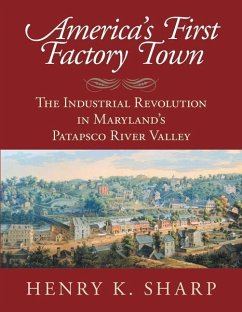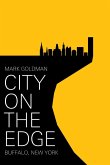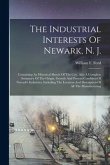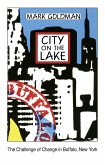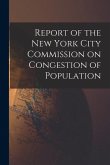After extensive research in eighteenth- and early nineteenth-century tax and land records, ledgers, journals, and newspapers, architectural historian Henry K. Sharp convincingly demonstrates how the five Ellicott brothers created America's first factory town, not in New England, but in Maryland's Patapsco River Valley, and modeled it according to the Quaker concept of community. As the first merchant mills prospered in grain, other entrepreneurial spirits added cotton mills and ironworks. By the Civil War, the valley was a booming industrial center, but what the powerful and unpredictable river had given it swiftly destroyed in two terrifying floods. Perceptive and elegantly written, this book challenges long-held beliefs about the origins of the Industrial Revolution in the United States, and brings to life once more a time and place almost lost to history.

